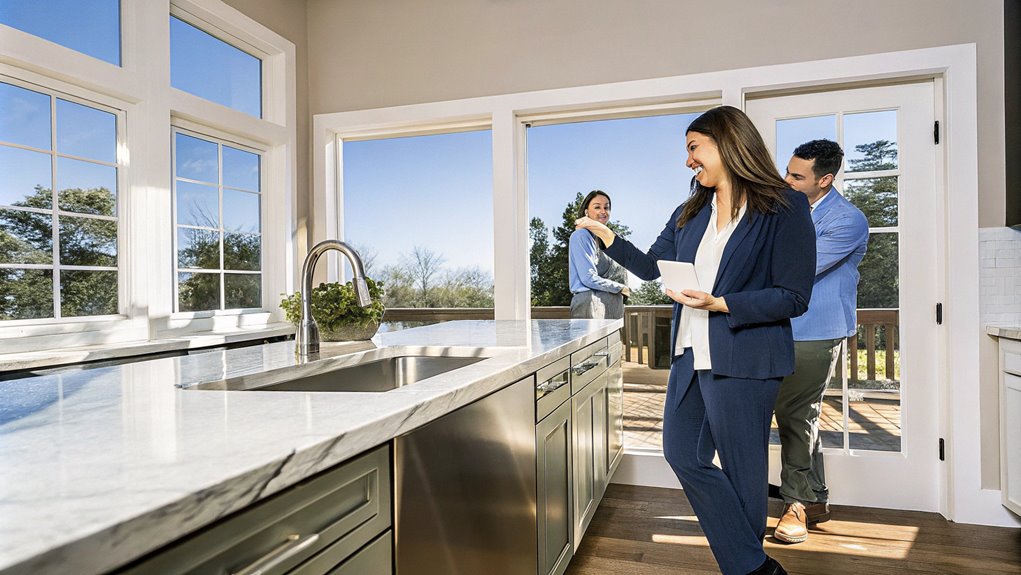When you want to save money on refinancing your home loan, watch out for hidden costs. You need to look closely at several things that can cost you extra money.
First, look at closing costs. These can be $2 to $6 for every $100 you borrow. Next, check if you have to pay a fine for paying off your old loan early. This fine can be up to $4 for every $100 you still owe.
You will also need to pay someone to check how much your house is worth. This costs about $300 to $500, and you can't get this money back.
Be careful when someone says "no closing costs." This often means you'll pay more each month instead.
If you start over with a new 30-year loan, you might end up paying $75,000 more than you need to. You may also have to pay for home loan insurance and fees to lock in your interest rate.
Looking at all these costs now will help you save money later.
Understanding Closing Costs

When you get a new home loan, you'll need to pay closing costs. These usually cost between 2% to 6% of what you borrow. Think of them as fees you pay to get your new loan.
You'll get a paper called a Loan Estimate that shows all the costs. This helps you know what you'll pay.
Some common costs are:
- Application fee: $300 to $500
- Bank fee: About 1% of your loan
- Home check fee: $300 to $700
- Title costs: $500 to $1,000
You also need to pay ahead for things like house taxes and home insurance.
Some banks say they've "no closing costs," but this means they add the costs to your loan or make you pay more each month.
Prepayment Penalties Explained
When you pay off your home loan early or make big extra payments, some banks charge you a special fee. This is called a prepayment penalty. The fee can be between 2% to 4% of what you still owe on your loan.
Want to know if you have this fee? Just look at your loan papers or ask your bank. Most of these fees go away after 3-5 years. The fee size can be different if you sell your home or get a new loan.
You have two choices to deal with this fee. You can wait until it goes away, or you can plan to pay it when you get a new loan.
Good news – many new home loans, like FHA and VA loans, don't have these fees at all. This means you can get a new loan when you want to.
The Appraisal Fee Trap

Getting a new home loan means you need to pay for someone to check your home's worth. This costs about $300 to $500. You pay this money first, and you can't get it back – even if you don't get the new loan. Many people don't know this.
Before you spend this money, do two simple things. First, look at what other homes like yours sold for nearby.
Second, check if your credit score is good enough. If your home is worth less now, or if your credit score is too low, you mightn't get the new loan. But you'll still lose the money you paid for the home check.
Ask your bank what they think your home is worth before you pay for the full check.
Extended Loan Term Consequences
When you make your loan last longer, you'll pay less money each month.
But there's a catch – you'll pay a lot more money over time.
Let's say you have a $300,000 home loan. If you start your 30-year loan over again, you might pay $75,000 more in extra costs, even if you get a better rate.
Think about what matters more to you: paying less now or saving money in the long run.
Higher Total Interest Paid
When you get a new home loan to replace your old one, you need to think about how long you'll be paying it. Many people choose to start over with a fresh 30-year loan. This means more money coming out of your pocket in the long run.
Think about it this way: You've been paying your loan for 5 years. Your house cost $300,000 when you bought it. If you start over now, you'll be paying for 5 extra years.
Let's look at some simple math. Say you still owe $275,000. Your old loan had a 4% rate. Your new loan has a 3.5% rate. Yes, you save $71 each month. But you end up paying $33,000 more over time because of those extra years.
To save the most money, try to keep your old loan length. Or pick a shorter one. Your monthly bill might be a bit higher, but you'll save big money over time.
Monthly vs. Overall Costs
Think about your home loan like a big puzzle. What looks good now might cost you more later.
When you make your loan longer, you pay less each month. But this trick can hurt your wallet over time.
Here's a simple example: You have a home loan for $300,000. After five years, you change it to get lower monthly bills. Yes, you save $400 each month. But in the end, you'll pay $70,000 more in total.
It's like buying something with a credit card. The small payments feel good now, but they add up to a lot more money later.
Want to save money? Try to keep your loan the same length when you change it.
Or pay extra when you can. This way, you can still pay off your loan when you first planned to.
Private Mortgage Insurance Costs

Your home loan may need something called PMI if you own less than 20% of your home's worth. PMI is a type of insurance that costs extra money each month. It often adds $100 or more to your monthly bill.
You can skip PMI in a few ways:
- Save up until you own 20% of your home
- Pay more money upfront
- Get two loans instead of one
- Ask for a new home value check if your home is worth more now
If you have an FHA loan, you pay a different kind of insurance called MIP. The only way to get rid of MIP is to switch to a regular loan.
Rate Lock Fees
When you want to keep your mortgage rate the same during a refinance, you'll need to pay a fee. This fee is like putting a hold on the rate you want. Most lenders ask for $750 to $1,500 on a $300,000 home loan to keep your rate safe for one to two months.
Be smart about when you lock your rate. If you need more time, you'll pay extra each week. If rates go down a lot after you lock, you can ask for a lower rate. But this will cost more money at closing.
You can try to talk to your lender about the fee. If you have good credit scores and other lenders want to work with you, your lender might lower the fee or not charge it at all.
Some lenders will give you back the fee when you close your loan on time.
Processing and Application Charges

Let's Talk About Fees When You Get a New Home Loan
When you switch to a new home loan, banks ask for two main fees: one to process your papers and one to look at your case. Together, these fees can cost between $300 to $900.
Here's what they often cost:
- The bank's work to process your loan: $200-$500
- The fee to look at your case: $100-$400
- Total you might pay: $300-$900
Don't just look at the loan's interest rate. These fees matter too! You can ask the bank to lower these fees or even drop them. Many banks will work with you if you ask nicely.
Want to save money? Try these tips:
- Ask more than one bank about their fees
- Look for deals when banks want more customers
- Ask which fees they can lower
- Get a list of all the costs
Some banks say they don't charge fees, but watch out – they might just add the cost to your interest rate instead.
Credit Report and Title Fees
When you refinance your home, you need to pay for credit reports and title papers.
Think of a credit report like your money report card – it shows if you've been good at paying your bills. Each report costs $30-50. If you have someone else on the loan with you, you'll pay double. Banks will check your credit more than once to make sure you're still doing well with money.
You also need to pay for title work. This costs between $500-$1,000. The title check makes sure you really own your home and that there are no problems with it.
You'll need new title insurance too, even if you got some when you first bought your home. This insurance keeps the bank safe. To save money, ask your title company if they can give you a discount since you used them before. This could save you up to 40% on the insurance cost.







